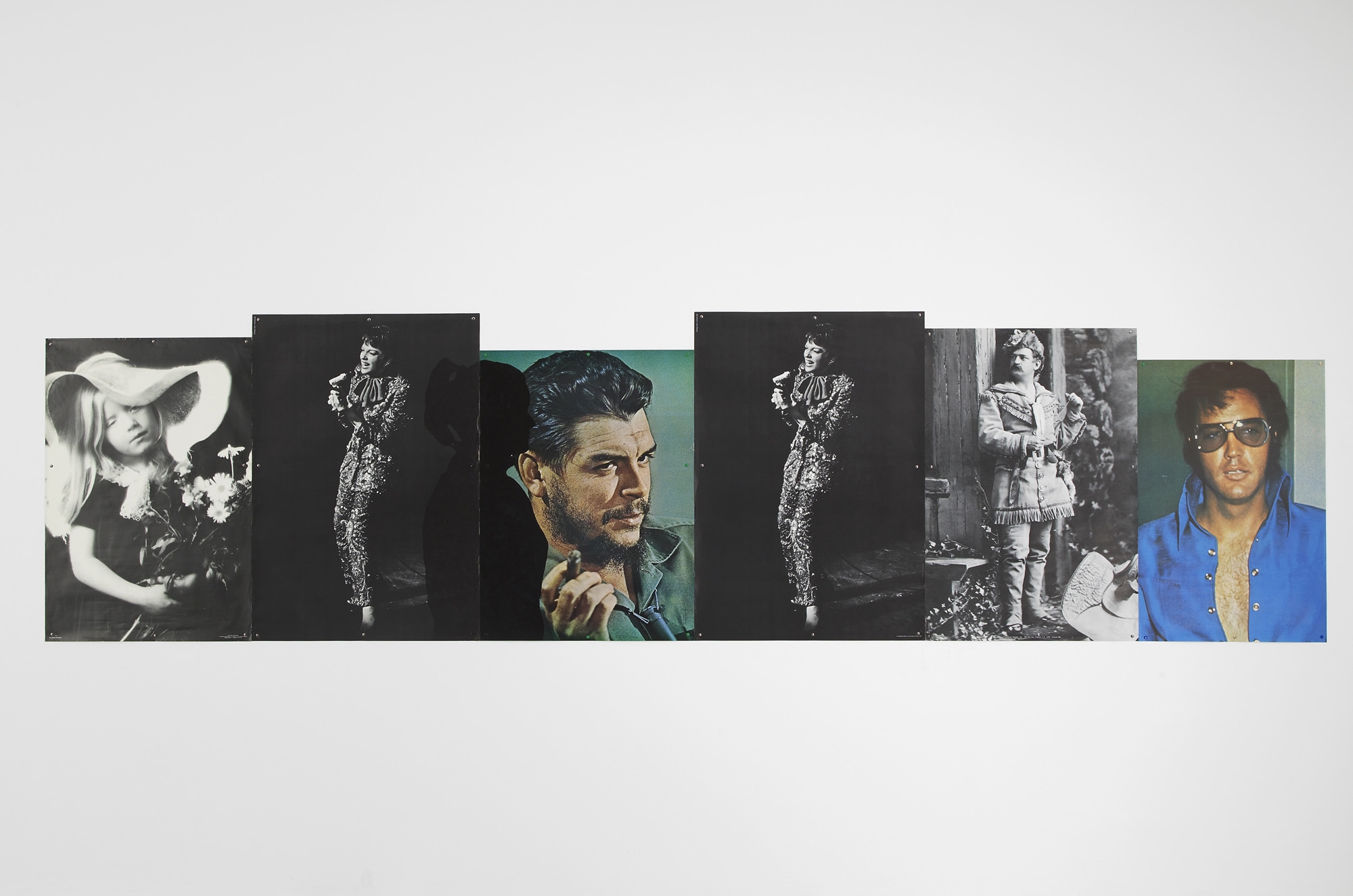Julia wachtel emerged at the same time as the Pictures Generation in 1980s New York, and her work shares a lot of the same concerns and strategies with regard to media appropriation and ironic juxtaposition – though with a slightly more oblique, cryptic twist. Astonishingly, though, this is her first solo show in the UK – and so takes the form of a miniature survey of works produced during different stages in her career.
Probably her best-known pieces internationally, however, are the large canvases onto which the artist paints oversize cartoon figures copied from chintzy greetings cards, alternating these with pictures sourced from news media. Superficially, then, there’s a kind of contrast between the bright, buffoonish, absurdly caricatured emotions and the grayscale, ostensibly factual depictions – the point being that actually both sets of images are emblems of the same simplified and exaggerated mediascape. Yet if her technique sounds slightly formulaic, the results are often decidedly unnerving, richly ambiguous. What, What, What (1988) is a case in point, featuring one of those tacky, phallic homunculi you get on comedy erotic cards, together with an utterly bizarre newsprint image of a fur-coated woman wearing some kind of pale, rubbery mask. The combination clearly invites a reading to do with desire and concealment – yet the overall message is as much about the fundamental unknowability and obscurity of meaning. With their open, exclaiming mouths, the figures appear to be trying to communicate something – but all the specifics have been leeched away, as if the sound has been suddenly turned down.
The cinematic or televisual analogy is appropriate. Wachtel’s longest-running series consists of sequences of commercial posters, which, read left-to-right, evoke celluloid strips or random channel-hopping. Narrative Collapse II (1981/2013), for instance, goes: schmaltzy anonymous flower-girl; Judy Garland in a gold lamé suit; Che Guevara; the same Garland image again; Davey Crockett; middle-aged Elvis. Superimposed on each sequence, additionally, is a portrait silhouette drawn in black marker pen, like a permanent shadow – the idea presumably being that our sense of self is as much a projection, an artistic construct, as these larger-than-life pop-icons.
If these sorts of identity-based issues can sometimes seem a little jejune, Wachtel’s American Color series from the 1990s onwards, combining monochrome canvases with silkscreened snippets of found imagery, is a more pertinent response to the massive proliferation of media technologies. In I’m Ok, You’re Ok (1992), a freeze-frame from a daytime TV talk show drifts beyond the borders of an expanse of yellow, as if vertical hold has broken down; while by ACv2.6 (2012), Wachtel’s source material has shifted to the Internet, featuring some incomprehensible extreme sport sandwiched between uneven slabs of grey. In both works, the sense is of a loss of bearings – as if contemporary culture itself is simply scrolling away incoherently; as if all visual material has become completely atomised, hopelessly reduced to an indecipherable level of abstraction.
In which case, might not the logical endpoint, the ultimate abstraction, be total imagelessness? That’s the sense, certainly, behind the show’s most profoundly unsettling work: a brief sound piece from 1984, in which a sample of brokenhearted histrionics from a daytime soap is followed by a creepy, muffled, oddly beguiling voice uttering the looped phrase, “Come closer… you disappear me”. A kind of sinister invocation of oblivion, then: a mantra for the mass media age.
This article was first published in the Summer 2013 issue.
